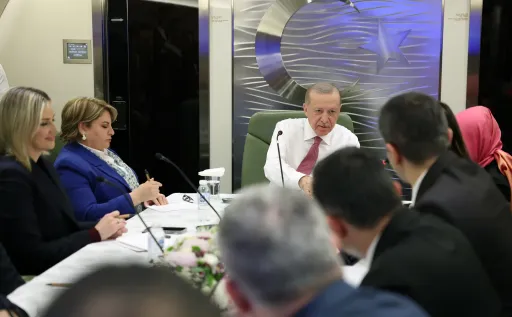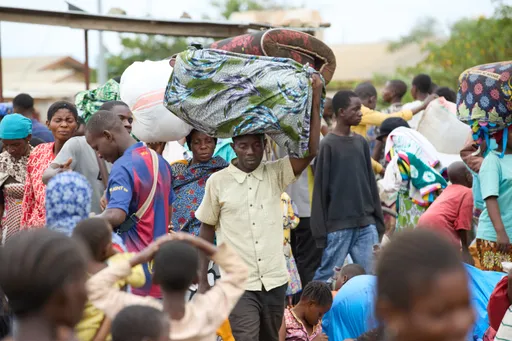By Pauline Odhiambo
Josephine Mwende Kamene cooks, types on her laptop and even prepares her seven year -old son for school using her feet – skills she learned out of necessity.
She is living with cerebral palsy (CP), a medical condition in the nervous system affecting muscle movement, balance and posture.
Due to this condition, Josephine’s upper body shakes uncontrollably, making it harder for her to use her hands.
“I may not be able to use my hands but with my feet I can do so many things just like any other person,” she tells TRT Afrika.
Cerebral palsy can occur if a baby's brain does not develop normally while they're in the womb, or is damaged during or soon after birth, experts say.
Growing up, Josephine was unaware she had a disability until she joined pre-school. While on the playground one day, she realised that she was not quite as flexible as her classmates.
Unlike other children
“We were drawing shapes in the dirt and I discovered that I couldn’t stretch my fingers to draw like the others kids,” she recalls.
“That’s when I realised I was different.”
According to the World Health Organization, cerebral palsy is one of the most common causes of significant physical impairment in children worldwide and occurs in at least two of 1,000 live births.
In Africa, the prevalence varies from country to county with an estimated two to 10 children born with cerebral palsy per 1,000 live births.
Research, however, shows that the number of cases in Africa may be higher as some of those affected are often stigmatised and hidden away from society.
Myths abound
Though Josephine was never hidden, she has nonetheless encountered several widely held myths about her condition.
“My mum was told several times to take me for prayers because many people thought I was bewitched,” says Josephine who grew up in Kenya’s Kitui county.
“Even now, I sometimes overhear people saying, ‘Look at her, she is shivering. She must be cold.’ I make it a point to tell them ‘No, I'm not feeling cold, this is just a condition. This is how I am.’”
While Josephine was pregnant in 2017, two hospitals refused to admit her for delivery.
“At the second hospital, the attending nurse took one look at me and flat out said, ‘We don’t admit people like you here,” she recounts.
“I was in so much pain by that time because my water had already broken but she didn’t care. I was literally in labour but she refused to admit me.”
Denied job
She was fortunately admitted at the third hospital she went to and delivered a healthy baby boy whom she named Gift.
But being denied healthcare was unfortunately not her first brush with discrimination. She has also been denied jobs on account of her condition.
“I was shortlisted for a job after successfully completing an online application process and then invited to an in-person interview,” recalls Josephine, a graduate in information communication technology.
“The interview went really but when I explained to them that I type using my feet, they told me that it was against company policy to place their laptops on the ground, and that’s how I lost out on the job”
Positive impact
She took consolation in the knowledge that hundreds of people had applied for the job but only a few, including herself, had made the shortlist.
“Training my mind to always focus on the positive aspect of things is what I do. I can be walking along the street and hear someone say, ‘Oh, she is so beautiful but has a disability. In such a situation I say to myself, ‘At least they have seen my beauty. At least they have seen I am smart. Cerebral palsy doesn’t define who I am.”
Her positive outlook helped propel her into the world of disability activism. She uses her social media platforms to promote inclusivity and create awareness on different types of disability. She also discusses some of the taboo issues affecting people living with disability.
Breaking barriers
Josephine has been recognised for efforts in breaking barriers and changing the narrative on gender equality and social inclusion
“Many parents of children with disability have told me that they have been encouraged by my talks on social media. They tell me that they wish their kids can grow up to be just like me,” she says.
“That inspires me to continue doing what I do, knowing that I am changing someone's life for the better and that we are able to rise together.”
➤ Click here to follow our WhatsApp channel for more stories.
























